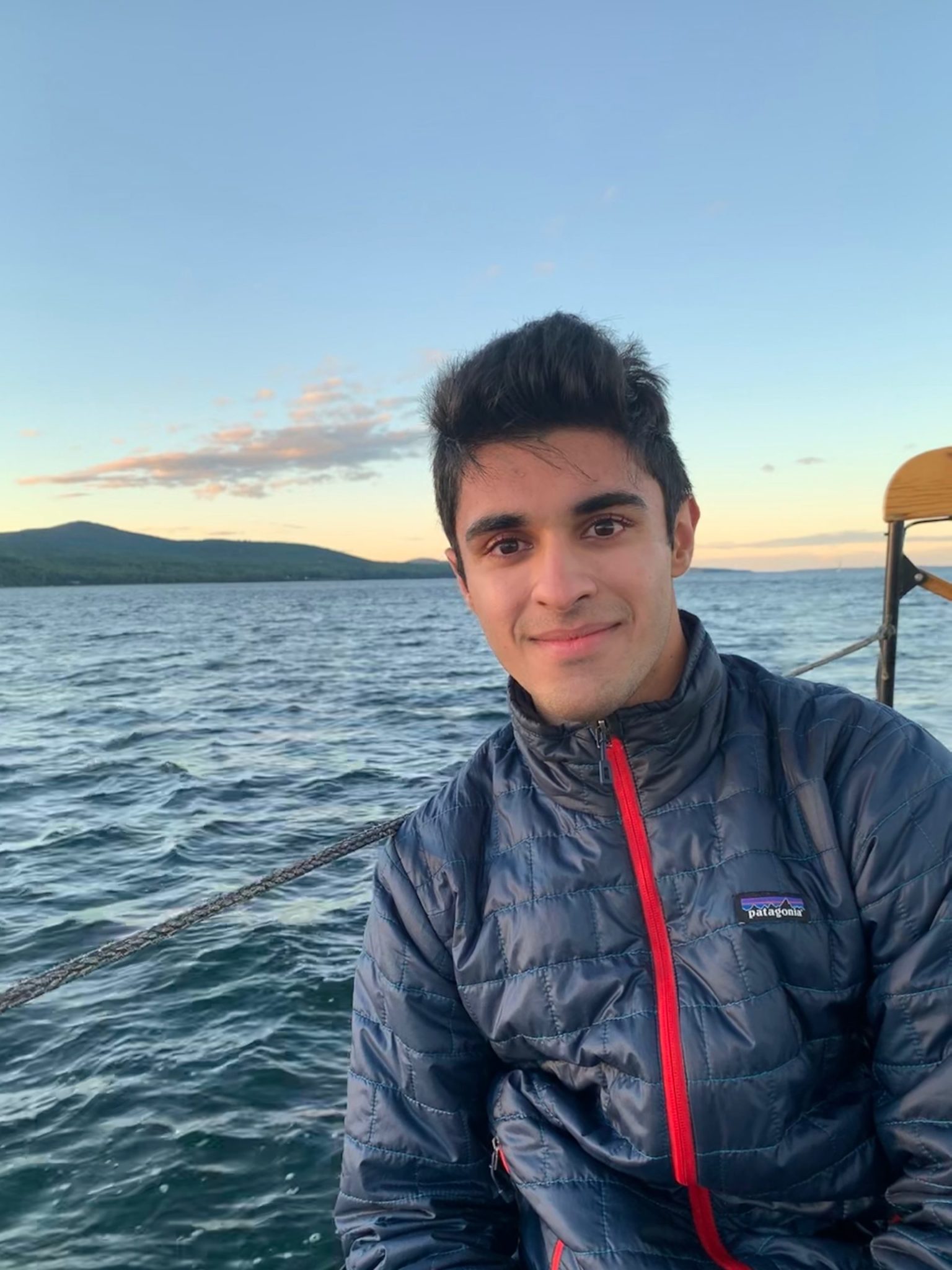Slowing down and starting up: Varun Kumar ’24 interns with Pine Park Health and relishes life at a slower pace

Courtesy of Varun Kumar
“Why do people postpone what they want to do to a later point? How do you know you will live that long?” Varun Kumar ’24 asked.
In an interview with the News, Kumar talked about having started off his leave of absence by reading “When Breath Becomes Air” — a memoir written by Paul Kalanithi MED ’07, a neurosurgical resident who was unexpectedly diagnosed with metastatic lung cancer on the verge of completing his medical training. Patient-doctor dynamics reverse themselves when Kalanithi finds himself in the same predicament as the people he cared for, prompting an insightful reexamination of the meaning of life and what truly matters when it comes to an end.
Some of the philosophical questions Kalanithi raised in his final days, Kumar said, loudly resonate amid the uncertainty of the pandemic. Albeit in a completely different context, thinking about the meaning of life while the world is, in many ways, at a standstill has led him to reconsider many things. Why do we lull ourselves into falsely believing that we have infinite time? In Kumar’s opinion, these challenging past few months have shown the importance of being more intentional with our actions.
“When I come back to campus … I’ll try to be more genuine and more intentional with what I do and think a lot more about what I want to get out of it, instead of doing stuff because I’m supposed to,” he said.
Kumar explained that before the pandemic, he did not consider himself an avid reader. But during his leave of absence, all of his days begin with a book. Although he is still not a fan of fiction novels, he has devoured a number of nonfiction works during his time away from Yale.
Reading is one of many things that Kumar has been able to focus on now that his life has decelerated. Learning how to play the piano, pursuing independent computer science projects and finding time to exercise outside are among other activities that he prioritizes during his time at home in Bergen County, New Jersey.
But the majority of Kumar’s days on leave center around his remote internship with Pine Park Health — a health care startup based in Oakland, California, that is committed to providing medical care to residents in assisted living facilities.
“The purpose of the company, as they describe it, is to prevent the elderly from having to go to the hospital in the first place, to make sure they’re well,” Kumar said.
He first came across Pine Park through the startup accelerator Y Combinator, which funds startups that are beginning to take off. In the past, Y Combinator has supported the growth of companies like Airbnb and Dropbox.
According to the Kaiser Family Foundation, COVID-19 has taken the lives of over 100,000 long-term care residents and staff in the United States — a number that has been rising steadily since April and is expected to grow even larger after the holiday season. Ensuring that residents and health care workers in these facilities have access to services like consistent testing is of utmost importance. This is where companies such as Pine Park Health, and people like Kumar, are stepping in.
“Pine Park Health has been pretty central to the COVID response in assisted living facilities, which are especially vulnerable to COVID because of the elderly population they tend to,” Kumar explained. “Back in April, I wasn’t working with them yet, but they started a COVID testing service, which I think has been really effective.”
As an operations intern, Kumar’s job involves helping to automate the medical supply chain as much as possible to prevent shortages of equipment — including COVID-19 tests, personal protective equipment and flu shots — as well as ensuring that the needs of the clinical teams within the facilities are met.
In frequent virtual meetings with management and health care workers in the facilities, Kumar gathers feedback about what they need and how Pine Park can help provide for that. Initially, the teams were having issues with placing orders and making sure that stocks for the supplies were always full. To address this, Kumar set up an online inventory using a product management software called monday.com to help them procure additional equipment with enough time to spare before they run out.
“All of my projects so far have basically been in response to issues that the clinical team has had,” Kumar explained.
In using this tool, nurses compile an inventory of everything in the facilities — from personal protective equipment to medication — through an online form, and the software program itself identifies what is missing every week. At the moment, Kumar manually purchases supplies, but in the future the tool should allow for the automatic placement of orders for dwindling inventory to prevent facilities from becoming vulnerable to these shortages.
Although his internship at Pine Park will come to a close in three weeks, Kumar has recently decided to extend his leave of absence, which was initially intended to be only for the fall semester, into a gap year. As he figures out what lies ahead, he wants to incorporate self-experimentation into his life to continue to discover new passions.
“I think in high school, and even in college in the first year, everything you do is geared towards a final goal, and you don’t really have the space to figure out what genuinely excites you, what genuinely motivates you,” Kumar said. “That’s the number one thing I want to get out of this time off.”
Maria Fernanda Pacheco | maria.pacheco@yale.edu







